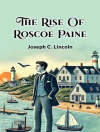Julian Hawthorne’s ‘Bressant’ is a thought-provoking novel that delves deep into the human psyche, exploring the themes of obsession, identity, and morality. Set against the backdrop of the 19th-century American literary landscape, the book is characterized by its rich, descriptive prose and its meticulously crafted characters. Through the tumultuous life of its protagonist, Bressant, Hawthorne intricately examines the conflicts between societal expectations and personal desires, positioning the story within the broader discourse of Romanticism that flourished during his time. As the son of renowned author Nathaniel Hawthorne, Julian Hawthorne carried a legacy that deeply influenced his literary endeavors. Educated in both law and literature, he developed a keen sense of narrative and philosophical inquiry, perhaps inspired by his father’s exploration of moral complexities. His own struggles with identity and the expectations connected to his familial lineage likely fueled the creation of ‘Bressant, ‘ allowing him to navigate his thoughts on individuality and existential conflict. Readers who appreciate rich character studies and philosophical musings will find ‘Bressant’ an engaging journey into the depths of human experience. The novel invites introspection and discussion, making it a noteworthy addition not only for fans of Hawthorne’s works but also for those interested in the interplay of society and self in literature.
Sobre o autor
Julian Hawthorne (1846–1934) was an American writer and journalist, recognized notably as the son of Nathaniel Hawthorne, one of America’s most celebrated novelists and the author of classics such as ‘The Scarlet Letter’. Julian carved out his own literary career, albeit in the considerable shadow of his father’s legacy. He was born in Boston, Massachusetts, and pursued education in Europe and America, eventually graduating from Harvard College in 1866. His works often reflected a blend of romanticism and realism, an extension of his father’s influence mixed with his personal style. Hawthorne’s novel ‘Bressant’ (1873), illuminates his unique narrative voice and artful prose. It explores complex themes of love, philosophy, and human nature, demonstrating Julian’s preoccupation with moral and metaphysical questions. While Julian Hawthorne never attained the same critical acclaim as his father, his contributions to American literature during the late 19th and early 20th centuries were significant. He penned numerous novels, short stories, essays, and works of criticism. Hawthorne was also a prolific journalist, and his literary output extends to a wide range of topics beyond fiction, including biography, travel writing, and history. Despite facing criticism for leveraging his father’s fame, Julian’s commitment to his craft and his prolific body of work underscore his place in the American literary tradition.












